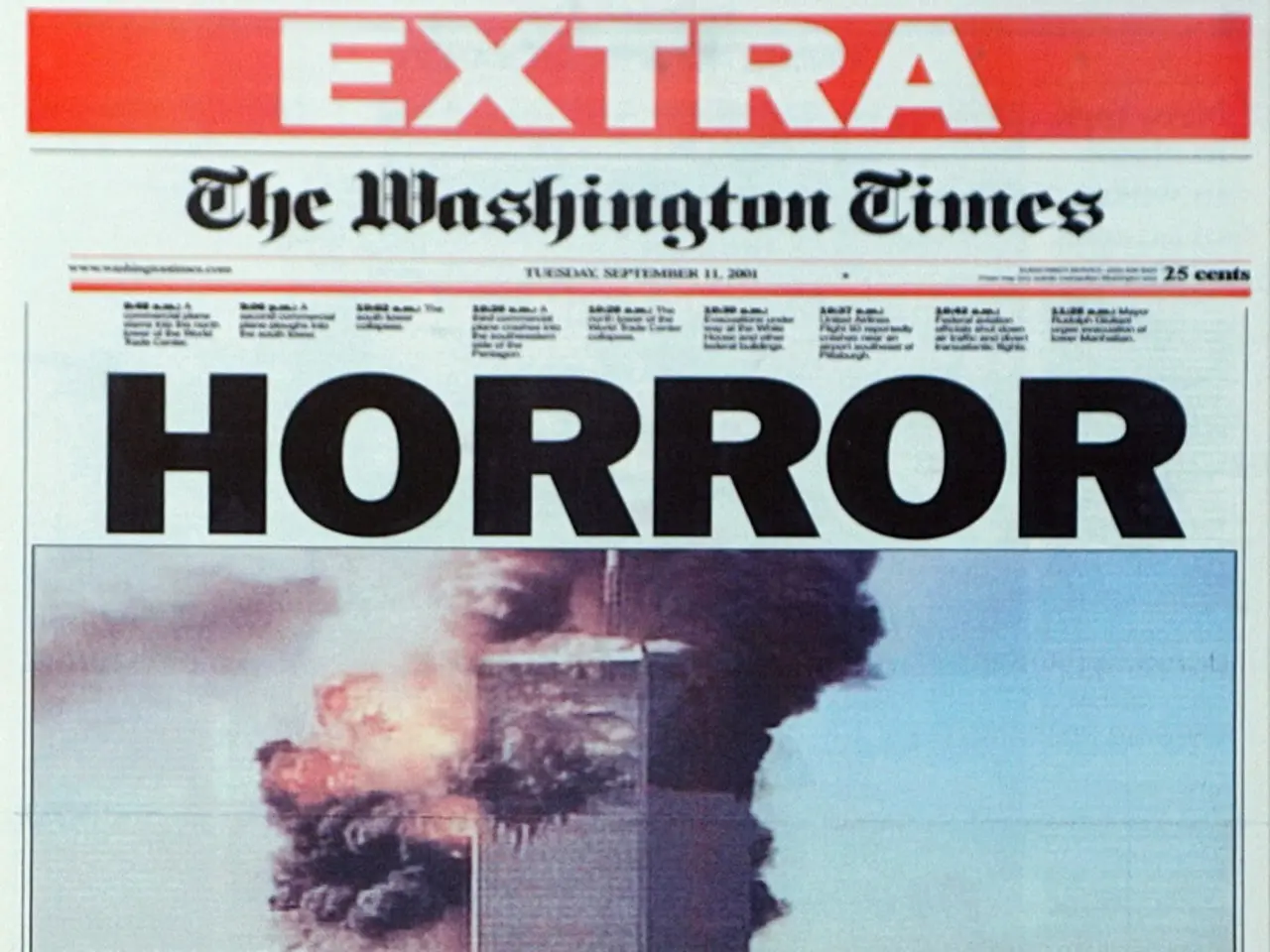Prepares to Boost Customs Taxes Up to 70% on Certain Nations, Announces Trump
The Trump administration has announced a significant overhaul of U.S. trade policy, with plans to impose new tariffs on various countries starting August 1, 2025 [1][2]. The tariffs, which will range from 10% to 70%, are designed to influence trade negotiations and are expected to impact a number of key trading partners.
President Trump announced earlier this week that he would be sending out letters to approximately 10 to 12 nations over the course of the next five days, detailing their new tariff rates [1]. Among the countries expected to receive these letters are South Korea, Indonesia, Switzerland, and the European Union (EU) [1][2].
The specific tariff rates for each country and product have not been disclosed in full, but it is clear that they will vary significantly. For instance, some countries may face tariffs as high as 70%, while others may be subjected to lower rates, such as 10-20% [1][2].
The administration is using these tariffs strategically to renegotiate trade deals with multiple partners before a July 9 deadline [1][2][3]. Some reciprocal tariffs that were delayed until July 9, 2025, and will now come into effect include Sri Lanka at 44% and Switzerland at 32%, while Taiwan will face a 32% tariff on almost all products [3].
The White House has not signed a framework for trade deal negotiations with Vietnam, and details about the administration's agreement with the United Kingdom and China beyond social media posts from President Trump have been limited. Treasury Secretary Scott Bessent predicted a "flurry" of deals before July 9, but President Trump stated that not all 200 deals can be made in the given timeframe [1].
The European Union is in the midst of difficult negotiations, which are likely to continue into the weekend as the July 9 deadline approaches. The administration has said that its timeframe for drafting deals is flexible for countries that make a good-faith effort to negotiate with the United States [1].
As the new tariff regime is implemented, it is expected to have a significant impact on global trade and the U.S. economy. The administration maintains that these tariffs are necessary to level the playing field and protect American jobs [1].
[1] The New York Times [2] The Washington Post [3] Bloomberg News
- The Trump administration's new trade policy, which includes imposing tariffs on various countries, is part of a larger political strategy aimed at renegotiating war-and-conflicts over trade deals before the approaching deadline.
- As the administration implements its new tariff regime, policy-and-legislation dictating the specific tariff rates for each country and product are expected to have a significant impact on the general-news landscape, especially regarding global trade and the U.S. economy.







